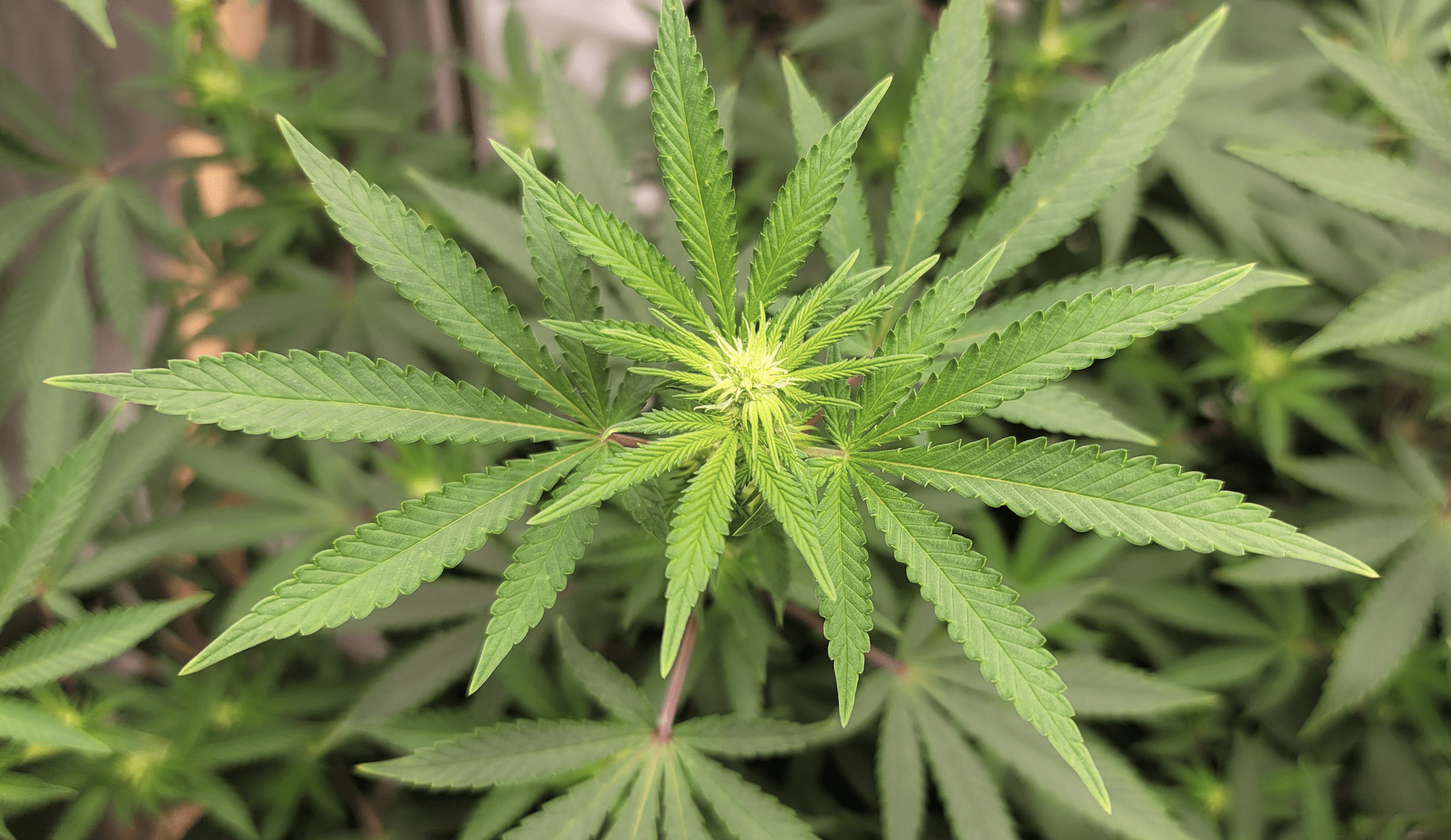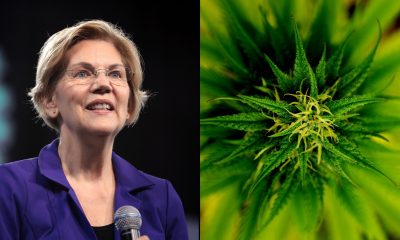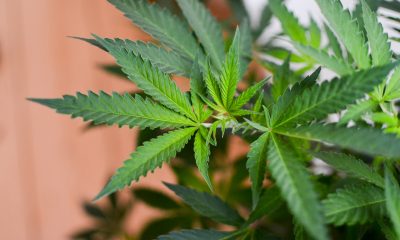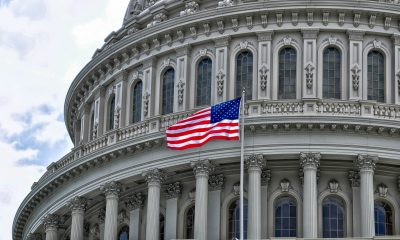Politics
Senator Files Bill To Prepare For Federal Marijuana Legalization With Alcohol-Like Regulations

A Democratic senator has refiled a bill that’s meant to lay the groundwork for federal marijuana legalization.
Sen. John Hickenlooper (D-CO) introduced the legislation—titled the Preparing Regulators Effectively for a Post-Prohibition Adult-Use Regulated Environment Act (PREPARE) Act—on Thursday.
The incremental reform would direct the attorney general to create a commission charged with making recommendations on a regulatory system for cannabis that models what’s currently in place for alcohol.
It’s largely identical to a House companion version filed by Reps. Dave Joyce (R-OH) and House Minority Leader Hakeem Jeffries (D-NY) in April, with some additional provisions related to commission membership and directives. The bill was introduced for the first time last session in both chambers, but it did not advance.
Hickenlooper, who served as governor of Colorado when voters approved a first-ever recreational cannabis legalization initiative in 2012, which he campaigned against at the time, said in a press release on Monday that his state “is the model for a safe, well regulated marijuana market.”
“Let’s build on that success with federal regulation,” he said.
— Senator John Hickenlooper (@SenatorHick) August 1, 2023
Here’s what the bill would accomplish:
Require the attorney general to establish a “Commission on the Federal Regulation of Cannabis” within 30 days of the bill’s enactment.
The commission would be responsible for studying federal and state regulatory models for alcohol and make recommendations about how they could inform marijuana regulations.
Among other things, the commission’s report must look at the impact of marijuana criminalization, particularly as it concerns minority, low-income and veteran communities.
The panel would also examine the “lack of consistent regulations for cannabis product safety, use and labeling requirements,” including those related to youth safety, as well as the “lack of guidance for cannabis crop production, sale, intrastate, interstate, and international trade.“
It would also need to make recommendations on how to remedy cannabis-related banking and research barriers as well as address measures to ensure the “successful coexistence of individual hemp and cannabis industries, including prevention of cross pollination of cannabis and hemp products.”
Members would further be mandated to study and make recommendations on “efficient cannabis revenue reporting and collecting, including efficient and tenable federal revenue frameworks.”
The panel would be required to issue a report to Congress within 12 months.
Colorado pioneered one of the most successful legal cannabis markets, and our PREPARE Act will lay the groundwork for federal legalization.
Americans overwhelmingly support legalizing weed – it’s time to give the people what they want!
— Senator John Hickenlooper (@SenatorHick) July 20, 2023
The bill was revised for the new Congress to make it so the commission would also have to look at “requirements to protect youth and reduce harms to youth” as part of its directive to assess the lack of consistent safety standards in marijuana regulations.
The Senate version from Hickenlooper also differs from the current House bill in that it includes an extra responsibility for the commission to propose measures to “alleviate and remedy” any “disruptions to established State and local regulatory systems with regard to cannabis as a result of Federal regulation.”
Unlike last Congress, the legislation now requires the House minority leader to appoint a commission member who is an “expert in the history of cannabis criminalization and the impact of criminalization on various communities, particularly minorities, medical patients, and veterans.”
Previously, the minority leader was tasked with appointing someone who was “medically licensed with substantial knowledge and demonstrated research into cannabis use and medical treatments.” That would instead be the majority leader’s responsibility under the amended bill, whereas the previous version would have had the majority leader appoint a medical cannabis patient or advocate, a role that is no longer contemplated under the new bill.
The Senate bill also expands on the House measure by adding one state and one local marijuana regulator to the list of commission members.
The commission would also include representatives of:
- Department of Health and Human Services
- Department of Justice
- Department of Agriculture
- Department of Veterans Affairs
- Department of Interior
- Department of Education
- Department of Labor
- Department of Commerce
- National Institutes of Health
- Alcohol and Tobacco Tax and Trade Bureau
- Food and Drug Administration
- Internal Revenue Service
- Bureau of Alcohol, Tobacco, Firearms and Explosives
- National Highway Traffic Safety Administration
- Occupational Safety and Health Administration
- National Institute of Standards and Technology
- Small Business Administration
- U.S. Trade Representative
—
Marijuana Moment is tracking more than 1,000 cannabis, psychedelics and drug policy bills in state legislatures and Congress this year. Patreon supporters pledging at least $25/month get access to our interactive maps, charts and hearing calendar so they don’t miss any developments.
![]()
Learn more about our marijuana bill tracker and become a supporter on Patreon to get access.
—
It would also include a person formerly incarcerated for a non-violent cannabis use or possession crime, a substance use disorder prevention expert, a representative from a trade organization or nonprofit representing highly regulated adult goods and consumer package goods and two people who have worked to develop state-level regulatory systems.
Some of the appointments would be made by the attorney general, and others would come from congressional leaders. The bill also contains a stipulation that, “if after the commission is appointed there is a partisan imbalance of commission members, the congressional leaders of the political party with fewer members on the commission shall jointly name additional members to create partisan parity on the commission.”
The bill’s supporters include the Veterans Cannabis Coalition NORML, US Cannabis Council, Minorities for Medical Marijuana, National Cannabis Industry Association (NCIA), Coalition for Cannabis Policy, Education and Regulation (CPEAR) and more.
Attorney General Merrick Garland, for his part, has repeatedly said that he doesn’t feel that intervening in states that have legalized cannabis is an appropriate use of Justice Department resources.
He said in March that the federal government is “still working on a marijuana policy” amid an ongoing administrative review into cannabis scheduling that President Joe Biden directed late last year.
The U.S. Department of Health and Human Services (HHS) and Drug Enforcement Administration (DEA) are leading that review, and DEA Administrator Anne Milgram said last week that she will “keep an open mind” about where the evidence leads in terms of the future scheduling decision.
HHS Secretary Xavier Becerra told Marijuana Moment in June that it’s his hope that the agencies of jurisdiction will be able to complete their work by the year’s end, but it remains to be seen if that will happen.
Read the text of the PREPARE Act below:
Top Federal Health Officials Say Psychedelics’ Schedule I Status Creates ‘Hurdles’ To Studying Them
Photo courtesy of Mike Latimer.
















